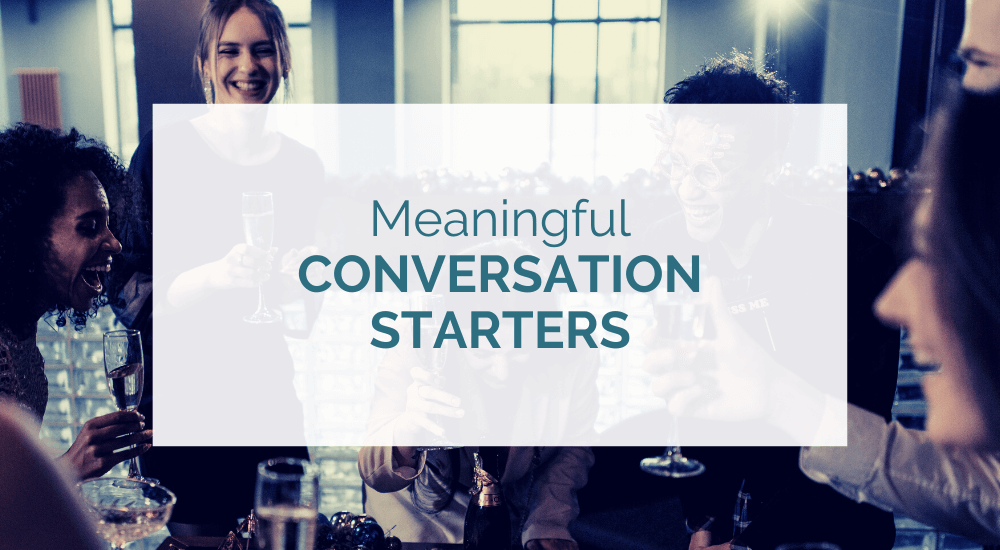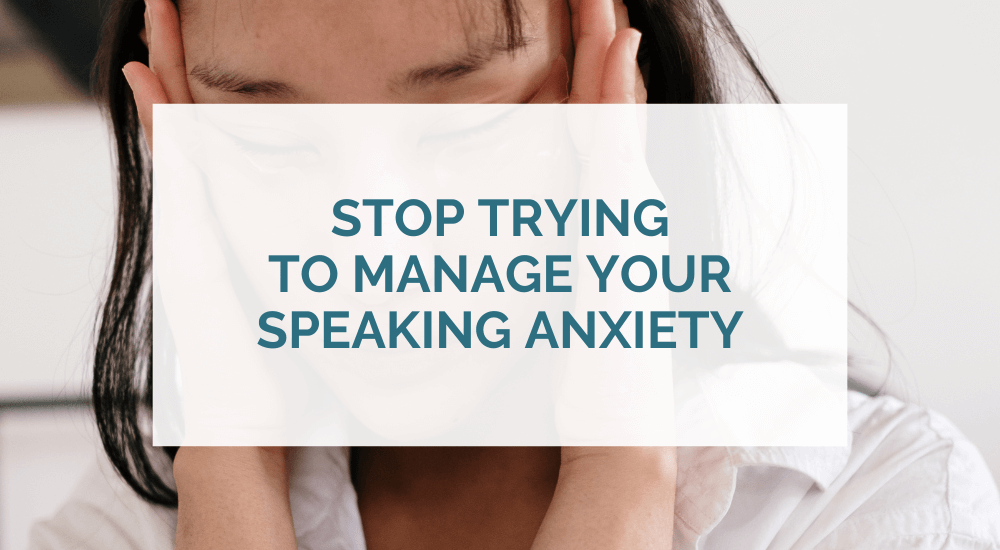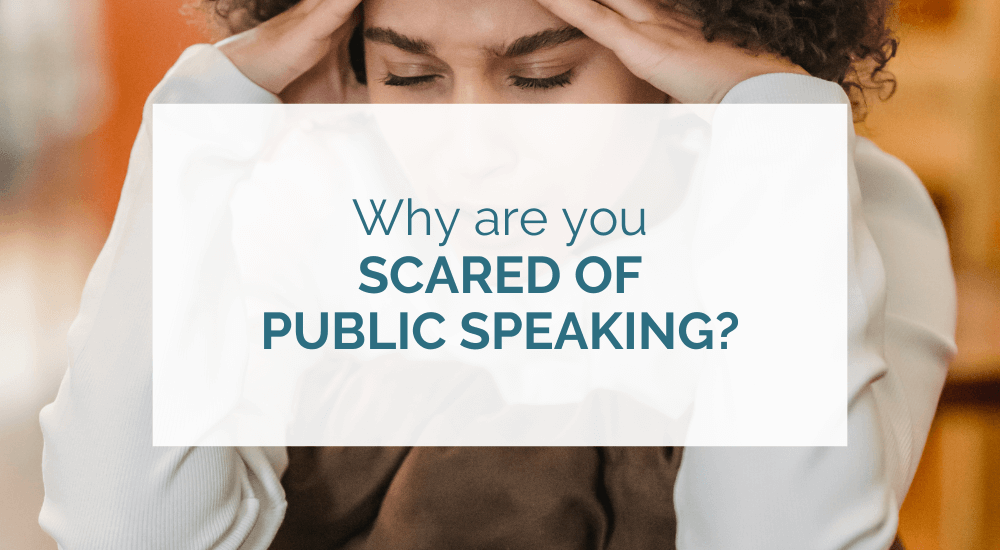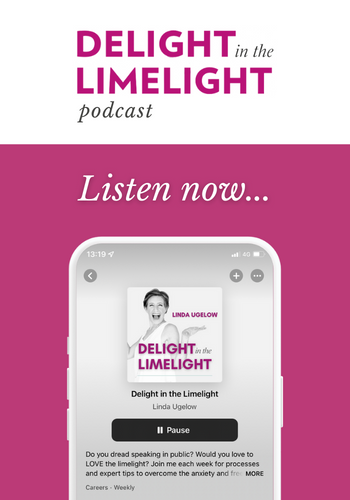It’s often suggested that pushing away your fears — feel your fear and do it anyway — is the right way to step out of your comfort zone. Ignoring your fears can, in fact, help you accomplish a task for an important immediate objective. And you may experience a sense of pride.
But what if you are confronted with the same fear on a regular basis like teaching a class, selling your service, or networking? Where are you the next time? Has the fear disappeared?
Or is it standing by waiting for you to make another heroic effort? And how many heroic efforts do you have the energy for?
My experience indicates that this “sweep the fear out of your way” approach isn’t always beneficial and can actually work against what you are aiming to achieve: confidence.
Take when I jumped right in using Periscope live streaming, for instance. It was scary, but I was determined to commit to broadcasting daily. I heard someone suggest that that by 100 scopes, I would feel proficient and relaxed. So, on I bravely went.
Well, at 75 scopes, it was clear that my fear wasn’t going anywhere soon. Yes, I was doing it, and I think that I was helping people in some ways, but the feeling inside was really uncomfortable. My heart was still pounding out of my chest; I hadn’t become the cool, confident live streamer that I hoped to be.
I realized that I was falling into what Albert Einstein described as insanity: doing the same thing over and over again, but expecting different results.
Nothing was going to change no matter how many times I pushed past my fear.
In fact, what I had been doing was reinforcing feeling the fear, by going on camera afraid each and every time!
I was deepening the neural pathways in my brain by associating going on camera with fear! . which, of course, is just the opposite of what I wanted to happen.
Here’s how I look at it now. Having fear is human: it’s there to protect us from physical danger, like being chased by a predator. But in the comfort of our modern lives — in the absence of such predators, aggressors, hippos, and such — this kind of fear points to stress or triggers from past negative experiences where we felt shame or hurt in some way.
These experiences are operating in the background of our psyche, taking up mental bandwidth and memory, just like apps running in the background of the computer.
If you stay in your comfort zone, protected by the familiarity of your routine, you may continue on blissfully unaware of such limiting beliefs that you acquired long ago.
Think about going on camera, on the other hand, and you can be sure you’ll remember plenty of instances from the past that have impacted your feelings of confidence or lack of it.
Don’t worry: this is good news. We can feel grateful for the fear, eager to embrace and understand it: it’s a signpost of what needs to be done, a powerful tool to declutter our mental closets. And just like an actual cleaning out of our closets, we can sort through what we want to keep and what no longer fits. And when it’s cleared out — wow, so much spaciousness! We feel renewed and energized.
But this fear can’t always be overcome by just crossing your fingers and hoping for the best. It’s funny because we wouldn’t put that expectation on ourselves if we were picking up, say, the violin. Yes, to build confidence, you have to practice confidence.
So — how does one practice confidence? Here are my top 5 tips:
1. Speak well to yourself.
It’s always delightful to get nice feedback from others. However, don’t fall into the trap of seeking approval outside yourself. Approve of yourself: be the one that says the words you long to hear for encouragement. Speaking to yourself with compassion, friendliness, and encouragement — the way you long to be spoken to — confers a host of mental benefits. After all, the most important relationship you have is with yourself. Make it a good one.
2. Practice patience.
This is the same as mindfulness, which has been proven to have significant benefits for your physical and psychological well-being. And you can practice anytime, anywhere.
It goes like this: be aware of your awareness; that is, begin to observe yourself and your surroundings. Start with your body sensations, feeling your feet and legs, your belly and chest, your arms, neck, and head. Notice your breath flowing in and out, the sensations that you are experiencing. Let your eyes notice what is in your visual field, your ears, what you are hearing. Perhaps sensations of smell and taste as well.
Then, go beyond these simple sensations to feel the energy, the quiet, or the noise that surrounds you. If you are preparing to go on camera or onstage, practice being in your sense of presence in those particular environments.
3. Input the image of confidence in your imagination.
Visualize: close your eyes and relax your body completely. Visualization has been shown to reduce speech anxiety.
Stay firmly connected with your sensation of relaxation and, in your mind’s eye, see yourself speaking on camera or doing whatever activity you would like to build confidence in. Allow the feelings of comfortable presence to pervade your body and your mind.
4. Stand or sit in a posture of confidence.
Harvard psychologist Amy Cuddy and others have studied the effects of being in confident body postures affects the hormones in our body, making us chemically predisposed to feel more confident. But we don’t need even science to tell us this: you know what confidence looks like when you see it.
Look for the sensation of easy confidence and practice feeling it in your body. Feel your feet on the ground, your body relaxed and open. Think regal.
5. Be prepared.
As my experience on Periscope showed, winging it does not bring about confidence (unless improvisation is your gig). So know your material well. When you’re confident about your material, you can go off script without worrying about how to get back.
“Face your fears.” So, do you go with the old adage or not? Ultimately, the answer isn’t a simple “yes” or “no.” We are complex beings with strengths in some areas and growing edges in others. Have both approaches at the ready: when you feel yourself teetering on the edge to try something out, give yourself the nudge you need to just do it.
On the other hand, when you feel yourself hanging back with a strong “No!” in all of your cells, don’t try to fight past the feeling. Rather, take it as a gift and invitation to clean out the past burdens that are no longer serving you. And when the gutters are swept clear, enjoy the new flow and freedom to step into a new exciting territory.
Now tell me about YOU in the comments below!
Do you push past fear to speak publically?
Does fear hold you back?
What experiences from your life do you think made if not feel safe to be in the spotlight?
Which of tips do you feel will make the most difference for your confidence?
Click here for the FREE Fear to Fabulous Blueprint: Master the Inner Game of Speaking on Stage or Camera with Confidence and Charisma.






It’s funny, Asha, isn’t it? You want to do it and you don’t. You are excited to do it and you’re not. And definitely, the preparation will get you through, regardless of how you are feeling inside. Though, that would be the best, wouldn’t it? To feel relaxed on the inside, too? Thanks for sharing this.
Put on the spot or dismissed. Brad Powell, that’s a powerful combination to squelch your ease of expression. Yes, you survived and using your power of awareness to master the experience. Thanks for sharing your stories here.
Valerie Mrak, yes, I can totally see how you could get lost in the middle of all that. How do you find your place, your voice? How great that you are now owning your voice and no longer shunning the spotlight!
Yes, Susan, being forced to do something before you are ready, or in an unsafe environment can be truly terrifying and long lasting! How amazing that you decided not to let that hold you back and how you’ve been making your progress over these years. It must be so satisfying to get the feedback you are getting at church! Thanks for your share!
Yes, Valerie, we are confirming our belief and experience to ourselves with the repetition. It’s happened to me in music quite frequently where a mistake is repeated and unintentionally practiced each time. It takes slowing down and awareness to make a deliberate change.
That must have been so hard to have put in all that work and still be afraid. But look how undeterred you’ve been and the results you got! That’s so inspiring! What in particular do you think made the biggest impact for change?
Gemma Deneen Peckinpah, I can totally see how these would have left a big imprint. Feeling underprepared, not performing to our expectations and being around toxic individuals all take their toll. We didn’t have the skills then that we do now to handle these things. Thank you for sharing these stories.
Interesting point Linda made about the neuroscience of doing something over and over again. If you allow yourself to be afraid and act in the same way over & over you’re actually creating a neural pathway which pretty much ensures that you will act that way again when you were afraid. I can see where this would apply whenever one feels fear in any area.
As a child and young adult, I was shy and had no confidence. Public speaking scared me to death. I was forced to be an MC at an event for 500 when I was 22 right out of college. I did toastmasters and completed to get ready. Yes, I was speaking but never got past the fear. In my late 20s I found different techniques (most what you noted above) and it changed my entire look out on life and career. I excelled at both and now I am asked to speak on a regular basis and there is no longer fear. You’re doing great work and something I wish they would teach everyone before they finish high school!
This was great info to re-read, Linda. I have had a couple of experiences where I humiliated myself when performing in some way. The first was in high school where I got elected at a student conference to a leadership position for which I was completely unprepared. Another was a lead role in a play where I had performed brilliantly (or so I was told) in rehearsal and then gave a not-very-good performance at show time. The 3rd time was 20 years ago when I spoke at a city council meeting and was mocked by the next speaker for using the term “thinking outside the box.” He said it was such a cliche & way over-used. People are still using it all the time 20 years later! and not being mocked, lol.
Being forced to speak as a pre-teen terrorized me. Those feelings of shame, ridicule and embarrassment stayed with me through high school and college, and yes, adulthood. I was shaky and all nerves.
In massage school I worked through some of those fears, gaining confidence. Being a small business owner I joined a BNI group and have been forcing myself to stand up weekly for 4 years now. In my head I try to emulate someone confident (What would Oprah do?!) and that helps a lot.
I Lector at my church regularly now. People come to me afterward and say they enjoy it when I read because I’m dramatic and I read it like poetry or a story. (Couldn’t have imagined it 10 years ago. It’s been a slow journey for sure.)
One on-going childhood experience I had that made me shun the spotlight was getting “lost” as a middle child in a household of 5 kids. I didn’t think my voice mattered much. My older sister was super-deft at getting her way (she became a lawyer!) and my brothers were significantly younger than me, so they were always the “babies”. Learning that I had something to say that matters to people was a revelation and took me some time to start owning.
I went to a highly competitive, prep school which demanded articulate (and correct) responses and scorned anything less than perfect. Felt like four years of creative oppression. Also my parents were of the mindset that children were meant to be seen – but not heard – except occasionally when put on display in front of other adult friends. I can remember being trotted out… Both of these made me want to run away – escape!! Fortunately, I survived and I’m now presenting a couple times per month. One thing that has helped me has been to make a lot of live videos and pay attention to the response I get so that I keep getting better and more comfortable.
I absolutely move past my fear when speaking! The morning of I am usually asking myself “why did I agree to do this???!!!!” And I so agree, when I am fully prepared, confidence comes through even if my nerves are acting up!